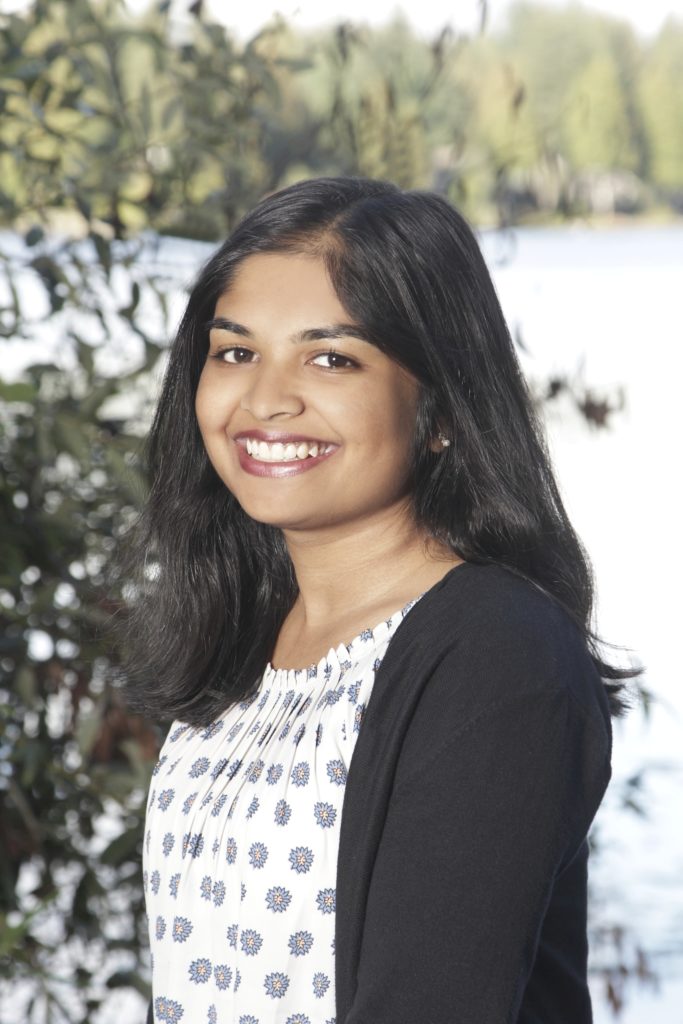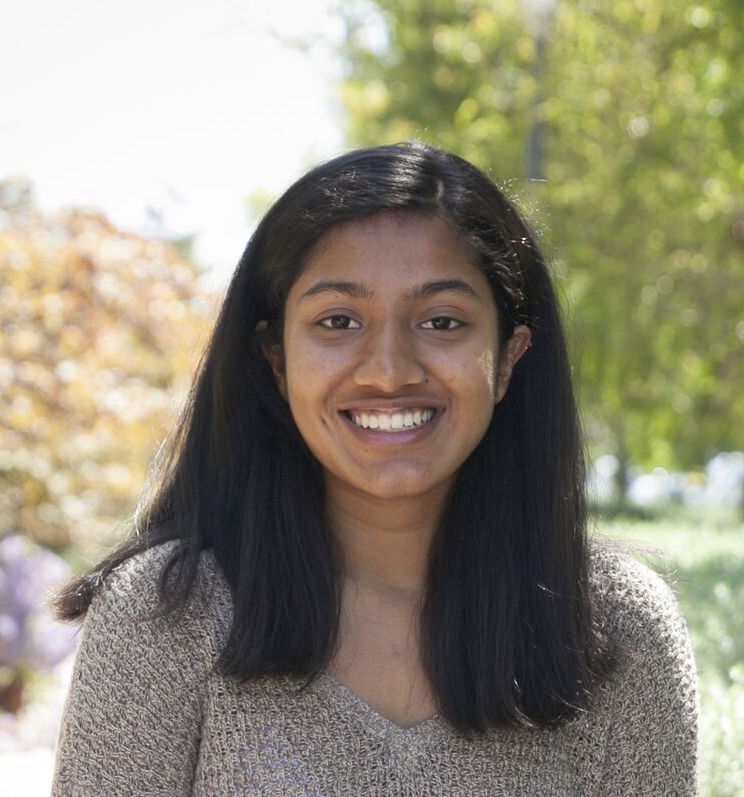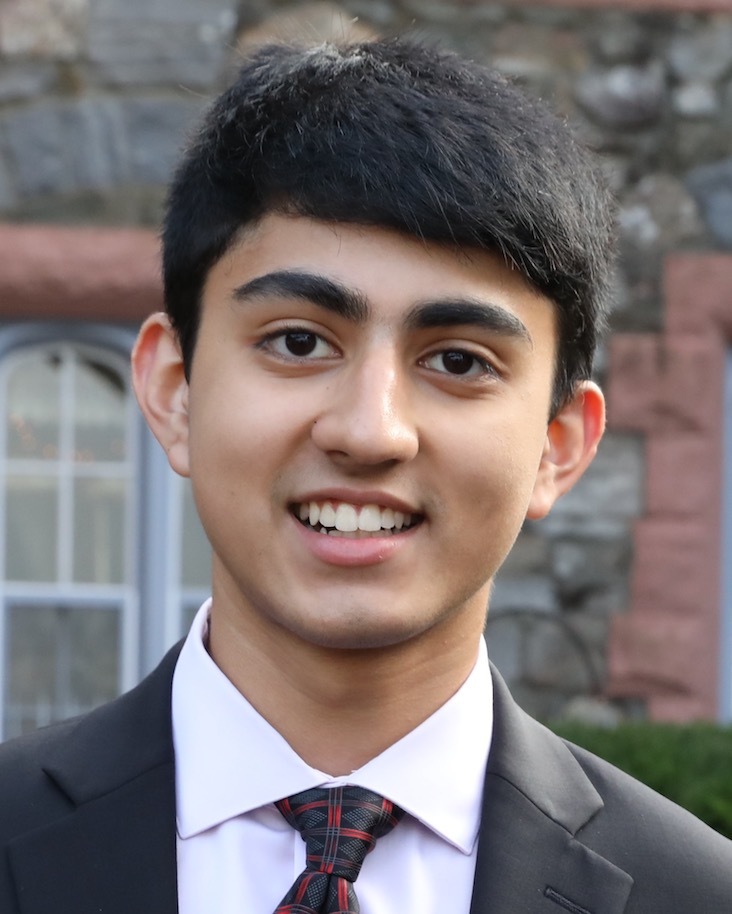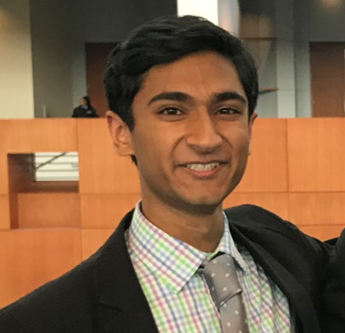1378 people reached on Lassi with Lavina FB page – 11 likes – 52 post clicks
The Indian-Americans
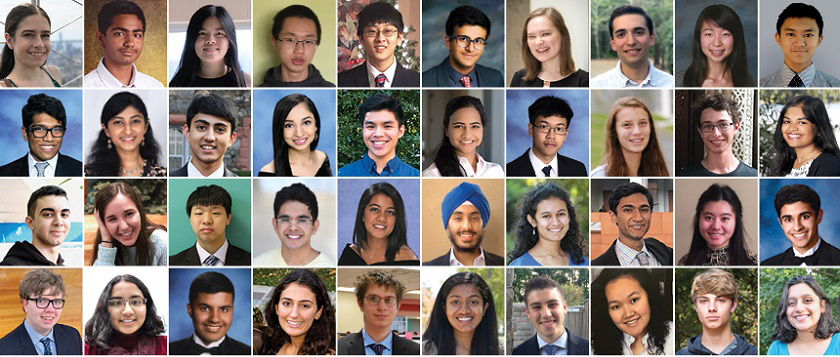
Indians in America: The Search for Scientists
Indian-Americans amongst 40 finalists vying in the Regeneron Science Talent Search
[dropcap]W[/dropcap]here do science breakthroughs begin? The Regeneron Science Talent Search, earlier known as the Westinghouse and then as the Intel Science Search, is one of the most exciting arenas in science, spotlighting young talent who may go on to make discoveries which transform the world. And this year there are several young South Asians amongst the finalists.
Alumni in the past have included recipients of the world’s most coveted science and math honors, including 13 National Medals of Science, five Breakthrough Prizes, 19 MacArthur Foundation Fellowships, two Fields Medals and 13 Nobel Prizes. As George Yancopoulos, President and chief scientific officer at Regeneron notes, “The legend was that these were the kids who would go on to do amazing things, make inventions, win Nobel Prizes.”
The Washington based Society for Science & the Public (Society) is committed to expanding scientific literacy, STEM education and scientific research through its world-class competitions, including the Regeneron Science Talent Search, the Intel International Science and Engineering Fair, and the Broadcom MASTERS. In 1942, it launched its first Science Talent Search and it is still going strong with participation from the nation’s most promising young scientists.
Last year Ishani Singh, 18, of Cherry Creek High School in Colorado, had won $150,000 as the third place winner when she investigated the developmental requirements of sex chromosome genes affected in Turner Syndrome. She worked towards determining that women with Turner Syndrome (TS), a genetic abnormality in which the second sex chromosome is missing, do have some cells with two X chromosomes. Another winner last year was Syamantak Payra, 16, of Clear Brook High School in Friendwood, Texas who won $100,000 for his Smart Bionic Leg Orthosis, a smart bionic leg brace that bends the knee automatically as the wearer walks. He also wrote a smart phone/watch app allowing control of the brace using voice commands.
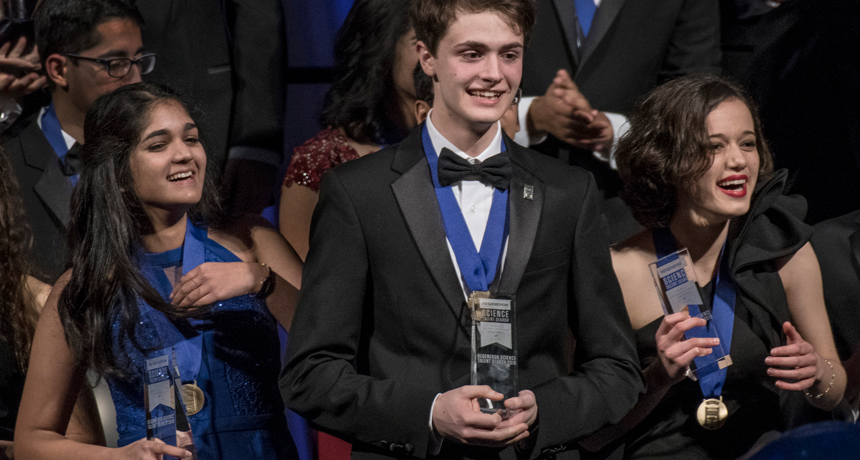
[dropcap]T[/dropcap]his year a large number of the 40 finalists are of South Asian descent and will be vying for $1.8 million in awards. The finalists will travel to Washington, D.C. from March 7-13, and meet with members of Congress and display their projects at the National Geographic. The finalists are each awarded at least $25,000, and the top 10 awards range from $40,000 to $250,000. The top 10 Regeneron Science Talent Search 2019 winners will be announced at a black-tie gala awards ceremony at the National Building Museum on March 12.
The young scientists are indeed the cream of the crop and are selected from over 2000 entrants from 34 schools in 17 states, and their projects cover diverse aspects of science encompassing behavioral and social sciences, biochemistry, bioengineering, cellular and molecular biology, chemistry, computational biology and bioinformatics, computer science, earth and planetary sciences, engineering, environmental science, genomics, materials science, mathematics, medicine and health, physics, plant sciences and space science.
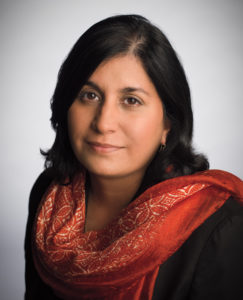
[dropcap]“T[/dropcap]his year’s Regeneron Science Talent Search finalists are helping to advance solutions to some of our world’s most intractable challenges,” said Maya Ajmera, President and CEO of Society for Science & the Public and Publisher of Science News. While the society doesn’t share information about students’ ethnic backgrounds, Ajmera points out, “Each year we have a wonderfully diverse range of students who apply for the Regeneron Science Talent Search and are named as scholars and finalists. As the child of Indian immigrants, I’m thrilled to see immigrants and first-generation Americans from around the world, including many from South Asia, enter and do well in our competitions.”
The projects this year span several STEM-related topics including therapeutic approaches to improving precision care for leukemia to developing a sensor to detect arsenic in groundwater. The finalists include several young South Asians. Here’s a sampling of the diverse scientific projects they have been working on: Aditi Singh has developed a computational model showing that visual short-term memory is an intrinsically limited human resource that may be further restricted by the brain’s rational decision to accept less precision to minimize neural effort; Eshika Saxena has designed a 3D-printed smartphone attachment that enables the camera to capture microscopic images of blood samples, which she then analyzed and matched to blood diseases in her custom 7,000-image database for rapid identification using artificial intelligence.
[dropcap]R[/dropcap]uhi Sayana has combined laboratory and computational methodologies to investigate a drug that, in clinically optimal concentrations, may selectively target tumors found in an aggressive form of acute childhood leukemia; Eish Maheshwari has explored the viability of binding reengineered drug-loaded nanoparticles to red blood cells to deliver drugs that may otherwise miss their targets or be metabolized by the liver; Varun Kumar has investigated a drug combination approach for the most common and aggressive type of adult brain cancer with the potential to have a greater anti-cancer effect than either drug alone; Ayush Alag has developed a machine-learning algorithm to identify a gene signature that can accurately, quickly and safely diagnose a food allergy based on a patient’s blood profile.
[dropcap]C[/dropcap]hirag Kumar has used machine learning to improve satellite-based measurements of ocean temperatures, giving scientists a tool that could more accurately predict climate change and its consequences; Preeti Krishnamani has examined the potential of using a natural, plant-based byproduct as a soil additive to rice paddies to reduce arsenic contamination in rice plants; Natasha Maniar has developed software to identify sources of atrial fibrillation by analyzing the heart’s electrical signals and using a computational tool to interpret those results, which she found to be more accurate than traditional, observation-based methods of identification; Anjali Chadha has developed a portable, affordable and easy-to-use sensor to detect arsenic in drinking water from underground sources that may be contaminated by this known carcinogen. To check out all the finalists visit https://student.societyforscience.org/regeneron-sts
Asked if South Asian students who have received these awards have gone on to making a mark in the field of science and math, Ajmera, who herself is a recipient and founder of the Global Fund for Children, points out The Regeneron Science Talent Search is the nation’s oldest and most prestigious science and math competition for high school seniors, recognizing the top 300 young scientists in the United States. She says, “Alumni have gone on to have world-changing careers in science and earn some of the most esteemed academic honors, including the Nobel Prize, the Fields Medal, the National Medal of Science, the MacArthur Fellowship and even an Academy Award.”
Indeed, there is an impressive list of recent South Asian winners of the science talent search who have gone on to distinguished careers. These include Maneesh Agrawala, MacArthur Fellow, Forest Baskett Professor of Computer Science, Stanford Computer Graphics Laboratory; Baiju Bhatt, Co-founder, Robinhood; Nadarajan (Raj) Chetty, William A. Ackman Professor of Economics, Harvard University; Kiran Kedlaya, Professor of Mathematics, Stefan E. Warschawski Chair in Mathematics, UC San Diego; Alexander Mittal, Co-founder & CEO FundersClub; Chetan Nayak, Director of Station Q, Condensed Matter Theory, Microsoft; Rajen Sheth, Senior Director of Product Management in Google Cloud Artificial Intelligence; Kavita Shukla, Founder Fresh Paper and Sujay Tyle, CEO and Co-Founder Frontier Car Group.
It will be interesting to see the contributions of the current batch of finalists in this science talent search bringing together the best of America.
(This article was first published in my weekly column India in America in CNBCTV18.com)

